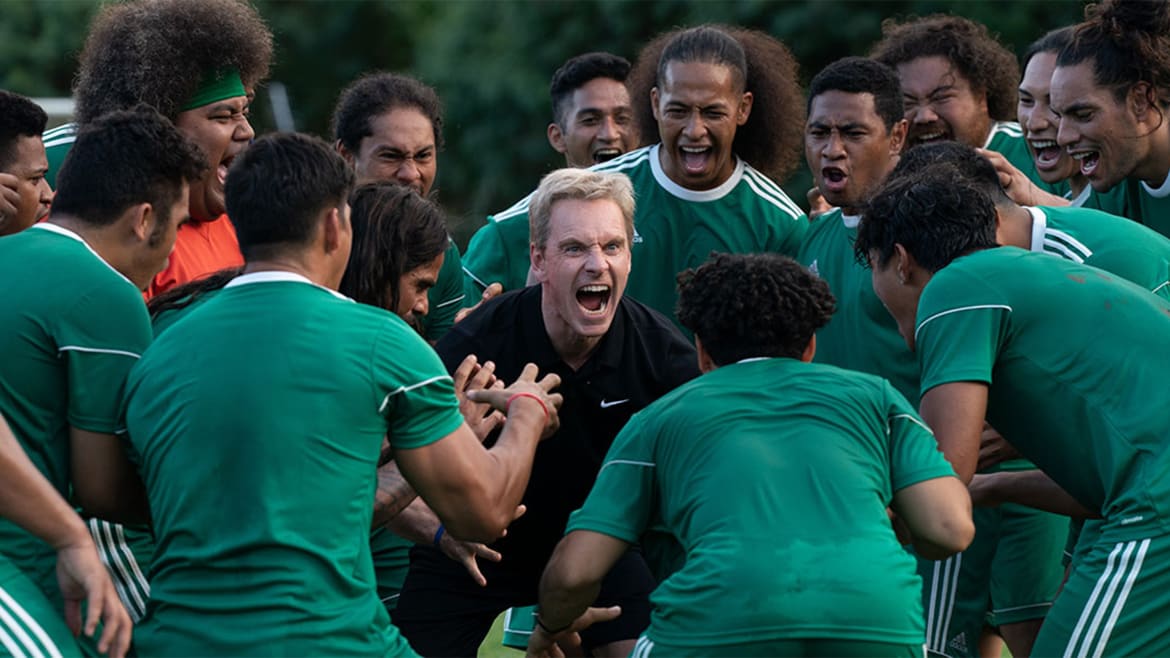Courtesy of TIFF
TORONTO, Canada—Taika Waititi’s last trip to the Toronto International Film Festival was in 2019 with Jojo Rabbit, a monumentally misguided and execrable WWII comedy that won the People’s Choice Award on its way to nabbing an Academy Award. Four years later, the writer/director returns to Canada with yet another mirthless mess, Next Goal Wins, the inspired-by-true-events story of a wretched soccer team attempting to reverse its dismal fortunes. Undone by clumsy writing and inapt casting, the film—arriving on the heels of 2022’s strained Thor: Love and Thunder—is another significant misfire for the New Zealand auteur. The best one can say about it is that it at least doesn’t feature a lovably cartoonish genocidal dictator.
Based on the 2014 documentary of the same name (with “a couple of embellishments along the way”), Next Goal Wins concerns the American Samoa national football (i.e., soccer) team, which suffered a historic 31-0 loss to Australia in its 2001 World Cup qualifier match. As if that peerless defeat weren’t humiliating enough, the team habitually couldn’t score a single goal, which eventually helped it seize sole position of last place in the global standings. Waititi recounts this ignominious state of affairs via early non-fiction footage, and it turns out to be the funniest part of his film, not to mention the realest, since everything that follows is so sketchy that it feels like it was hastily penned on a collection of cocktail napkins.
A decade of incompetence later, American Samoa is desperate for a turnaround, and national football federation president Tavita (Oscar Kightley) believes that the key to that improvement starts with a new coach. As luck would have it, an outsider becomes available when Thomas Rongen (Michael Fassbender) is fired from his current post by an American football federation panel that includes Alex (Will Arnett), Rhys (Rhys Darby) and Thomas’ wife Gail (Elisabeth Moss), from whom he’s unhappily separated. Thomas is a hothead who angrily throws chairs, coolers and other objects like some second-rate Bobby Knight. Predictably, he doesn’t take kindly to his dismissal, nor to the overhead-projector presentation given to him by Rhys that details the five stages of grief he’s going through at the present moment.

